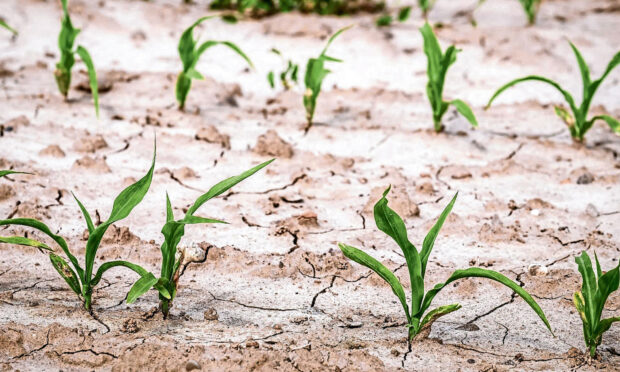A scientist at Invergowrie’s James Hutton Insitute (JHI) is to lead international research into crops that are resilient to climate change.
European crop yields are projected to plummet by a third by 2040 as a result of extremes in temperatures and greater variation in rainfall patterns which impact on soil and the type of crops which can be grown.
Dr Tim George, who focuses on the rhizosphere – the region of soil surrounding plant roots – is leading the team from a 22-strong consortium of organisations who will work with crop breeders and farmers from areas which are under the greatest pressure from climate-induced stress.
Soil and crop crisis
Dr George said: “There is both a soil and crop crisis developing in Europe.
“In 20 years’ time, we will need to have more resilient crops which can tolerate extreme temperatures, more variable rainfall and be able to grow in more marginal soil conditions.
Battle against climate change
“Managing the interface between the soil and the plant is where the real battle against climate change is going to play out. It is an honour to play a major role in such a vital and urgent project, which is a real coup for the James Hutton Institute.”
Investigations will focus on a range of cereal, tuber, beans and peas commonly grown in rotations in Europe, and work will also include research into improving soil nutrient availability and cutting the greenhouse gases being emitted from soil.
The five-year, 9 million euros project called Root2Res is funded by the Horizon Europe research programme and also includes soil scientists from Dundee University and Arvalis, a French research organisation dedicated to arable crops.
The group will meet for the first time next month.

